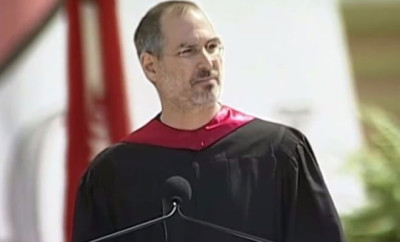
Deep Listening, How it literally saved my life!
One of the most common questions I am asked by leaders, managers, coaches and parents is: “How do you listen the way you do?”
When I was much younger, my innocent response was,“With my ears, of course!”
I have now come to observe through years of coaching people to developing their talent a key distinction: you must firstly develop your ability to spot and recognise a talent. This seems like such an obvious step, yet it is not. More often, your greatest talent or latent potential is hidden inside an ability that you may take for granted, attributes that you may even disregard as insignificant or trivial or you may be utilizing in an undeveloped or even negative expression.
This was certainly true about my heightened curiosity and passion to be truly present to another’s expression, to be able to soak in their words, gestures, voice qualities, and to feel literally touched … to hear what is not being said, what has been left out or has been quickly moved on from. I simply assumed each one of us were just as interested and enamored by listening to each other as I am. Most of us have two ears, right?
And, of course, there are many, many people who share this same curiosity and desire to learn, to be challenged, and to truly understand one another.
The Fear of Listening Deeply
Yet what if you find truly listening, suspending your own opinions, judgments, and beliefs to receive another’s, one of the greatest challenges of your day to day life? Don’t worry – you are far from alone in this quest.
You will know this because as another person speaks, you will hear your voice inside your head disagreeing, criticizing, you will see yourself looking away, avoiding eye contact, doodling, you will hear yourself talking over, cutting the other person off. You will hear yourself telling others where they are “wrong” and “foolish” in their thinking or view on life. You will hear yourself thinking about your next activity, your dinner, the fight you had this morning before you went to work. You will hear yourself comparing what you would really like to say, but are too afraid of the other person’s response. You will feel like you want to be somewhere else, your body positioned away from the other.
“You will hear yourself asking, “What was that…” “Sorry, what were you saying?”
You may hear and feel your heart beating faster, hearing only silence not knowing what was said because you felt so conscious of appearing like you were listening. You feel conscious of your clothes, the food you think could be on your face or the heat blushing in your cheeks. You may even feel confused and a sense of disconnection from yourself and another.
You may actually think you are a present listener, blissfully unaware that others find you distracted and somewhere else, even feeling unheard or misunderstood. The reality is, we all experience times in our day and life where we can get into this kind rhythm of disconnection, with ourselves and each other.
Developing the Listening Skill
» So how do we develop the ability to truly listen?
» How do we lean to fully hear our own voice, our own dreams, our fears and doubts?
» To be fully available to somebody else’s musing, their dreams, fears and doubts?
» How do we learn to be able to sit in silence with ourselves and/or another?
» How do we hear and listen to our intuition?
» How do we hear the sounds of our own vibration?
» How do we hear what is not said?
Crucible of Creation
As with any ability or potential talent, you may wish to go back to your earliest expression and relationship with it? For me, like many people’s talents, I discovered mine out of a dysfunction.
At the age of ten I was violently attacked and sexually assaulted. I did not know it at the time, but that one event; while traumatic, was going to provide me with many catalysts for self-actualisation through the journey of my life. One of them was discovering the power of listening.
During that event while literally fighting for my life, I survived strangulation by actively listening. Despite all the terror and chaos, I listened to the words and the feelings I picked up from the “attacker”. I heard his anger, confusion, I heard his own fear, I heard his shame, I heard his need to prove himself. At the same time I heard the voice of my own intuition or perhaps some other form of “guidance” suggesting how to escape. I was guided to try and get two questions out. It was hard because of his grip around my throat, but I finally got them out through broken breath. They must have stunned him. He released his tight strangulating squeeze around my neck for just a moment, long enough for break free and for me to run. I ran and ran reaching safety.
As the police interviewed and listened to what had happened during that time, I gave a detailed description of his voice, what he said to me, his face, his tattoos, even the stitching of his underwear. As a result of their listening, within 24 hours the police had arrested him and he ended up being sentenced to 9 years in prison.
As my family and I came to terms with this event, I made a decision. I decided that I did not want any of our extended family, friends or our local community (I lived in a country town) to know about this event. I feared I would be labeled and given a pre-introduction where ever I went as “the girl who got raped”. I desperately wanted to be like all the other little girls and boys. I did not want to have anything about me that made me different and separated me from them.
My decision meant in all of my friendships and within my family I concealed a secret that I fiercely protected. At some level I had learnt asking questions and listening to other people would keep me safe, protect me from getting hurt, and protect me from danger. It meant that I was always in control and would keep the conversation away from territory that could otherwise reveal my seeming “difference”.
And, of course, it kept me away from being able to experience in those early years true friendship, to be fully listened to, and to be fully expressed.
I’m grateful that early in my life and career I realised the patterns that I was using. I recognised that I had this essential skill of listening, core to relating, helping, leading, managing, creating, yet that I had been deeply unconscious to the ability. I did not recgonise it as a talent; I did not know its strengths nor its limitations. It was an intuitive wild and wooly ability that I unconsciously was using mostly in one of its lowest forms, for self protection. I had not discovered all the other applications or even what the potential was for such a skill.
This ability to deeply listen in a way of being totally present to another arose in the most desperate of circumstances. We see It can often be that way with skills and talents. Where we are challenged, or hurt, or threatened or our world turned-upside down— precisely it is there where some of our most precious gifts can emerge. Michael and I refer to this opportunity in Meta-Coaching as the Crucible of transformation.
Now, Your Story
- What are the abilities and talents you have been taking for granted?
- What are some of your dominant patterns that you may have been using in limiting or controlling ways?
- Are there some unrecognised and undeveloped talents crying out for your attention?
- What is calling out for you to harness and use in a productive, healthy way, to contribute and to experience more joy and fulfilment in your life?
For me, finally recognising and harnessing the potential power of listening, identifying its limitations and potential traps meant I could evolve from my limited expression. It meant I could give up the self protection. It has led to continuing to develop and foster it and also to supporting others in developing it. It was a natural progression in the early days of coaching as a new field for me to support others to truly listen to themselves, to hear their dreams, patterns, fears, limitations and opportunities, and to help each of us to simultaneously listen to ourselves and each other.
Keys to deep listening
What have I learned about the keys to deep listening? What did those experiences lead to?
Several things. It has led to the Meta-Coaching Training System®. In this system, Michael Hall and I use and teach more than 5 core skills that synergise for basic and advanced listening; including supporting, questioning, state eliciting, giving feedback and receiving feedback. Sub-skills include sensory acuity, calibration, rapport, sensory specific language skills, matching – sorting for sameness, sorting for difference, filtering for self and others, pattern recognition, flexibility in levels of abstraction (big picture to detail), developing ego-strength and many others.
It has led to the co-creation of the Energetic Living® philosophy, co-created with Sarah McIntyre. In it we have identified listening within the BEEMS™ framework. That is, learning how to listen as a leader, parent, lover, etc. to your own and another’s body, emotions, energy, mind and spirit.
Learning how to listen to your life and to hearing your authentic self. Listening beyond what you know or what is known in the world. Learning how to enter into a deep exploration and adventure to commune with the unknown. To hear the whispers of wisdom encoded within your DNA, your personal vibration, your breath, your dreams, and your personal guidance system. Listening and responding to the creative impulses that pulses through each and every one of you through out the day. Listening to the creation of a new culture and consciousness.
Now back to You
What abilities are you going to accept and recognise today? What path will you choose for exploring, expanding and actualising?







